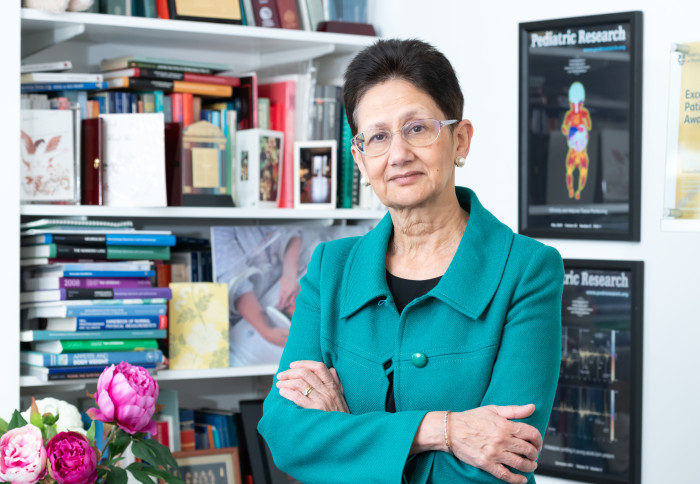Professor Neena Modi appointed President of the BMA
by Jack Stewart

Professor Neena Modi, Professor of Neonatal Medicine, has been appointed as the next President of the British Medical Association (BMA).
Succeeding Professor Sir Harry Burns, Modi’s tenure will start on September 14 2021.
Professor Modi, Head of the Neonatal Medicine Group in the School of Public Health, qualified from the University of Edinburgh and went on to complete specialist training in Neonatal Medicine at University College Hospital London and the University of Liverpool. As an advocate for children’s research she has held national positions as President of the Neonatal Society (2012-15), President of the Academic Paediatrics Association of Great Britain and Ireland (2014-15), and Vice-President for Science and Research of the Royal College of Paediatrics and Child Health (2009-15). She is a Fellow and Member of Council of the Academy of Medical Sciences.
She chaired the British Medical Journal Ethics Committee from 2010-2015, is a recent past-president of the UK Royal College of Paediatrics and Child Health (2015-18), and serves currently on a number of research committees and working groups. Neena will end her term as president of the UK Medical Women's Federation (2020-2021) when she becomes BMA president.
Neena heads the Neonatal Medicine Research Group and the Neonatal Data Analysis Unit at Imperial. She is also an Honorary Consultant in Neonatal Medicine at Chelsea and Westminster NHS Foundation Trust.
British Medical Association
The British Medical Association is the trade union and professional body for doctors in the UK. It was founded in 1832 during the midst of a cholera outbreak to share scientific and medical knowledge. The BMA currently has over 150,000 members.
Jack Stewart caught up with Neena to find out more about her upcoming tenure as President of the BMA.
Hi Neena, How does it feel to be appointed as President of the British Medical Association?
“Delighted and honoured! Especially as I believe there have only been five previous women presidents in the 189 year history of the BMA. The BMA supports doctors and also advocates to improve health policy and health services. It is a highly respected organisation in the UK and internationally.”
What do you see as the priorities for the BMA and its membership following the experiences of the COVID-19 pandemic?
“The NHS performed amazingly throughout the pandemic. The idea of a global pandemic has long been discussed but to see how the NHS rose to the challenge despite being stretched to the limit by years of underfunding has been incredible and wonderful. The NHS should be treated with the huge respect it deserves and not used as a political football. We are so very privileged to have a health service free at the point of use but we need to ensure it is supported properly so it retains its world-class status and is still there for future generations.”
What would you like to achieve in your year as President?
“I would like to see human health recognised by governments – together with environmental and planetary health - as a primary policy target. This may seem a strange thing to say, but let me explain. At present economic growth – measured in terms of GDP – is a primary policy objective. GDP a measure that is no longer fit-for-purpose and far too often acts counter to human health; for example by assigning positive value on activities that harm health such as the junk food and tobacco industries, and zero or negative value on activities like breast feeding that promote health. It’s also high time governments recognised that sustainability, not growth, should be the cardinal goal.”
What advice would you give to new medics training or starting their careers today?
“I would encourage doctors and nurses to recognise that the primary determinants of health lie outside healthcare. Hence in addition to providing good healthcare, all of us have a responsibility to lobby for policies that support health throughout life, such as breast feeding, parenting, good housing and air quality. This often means stepping outside of our comfort zones. But we owe it to patients, the public, and future generation not to shrink from advocating on their behalf for improvements in the conditions in which we are conceived, grow up, and age, that are crucial to establishing and sustaining life-long health.”
Article text (excluding photos or graphics) © Imperial College London.
Photos and graphics subject to third party copyright used with permission or © Imperial College London.
Reporter
Jack Stewart
School of Public Health